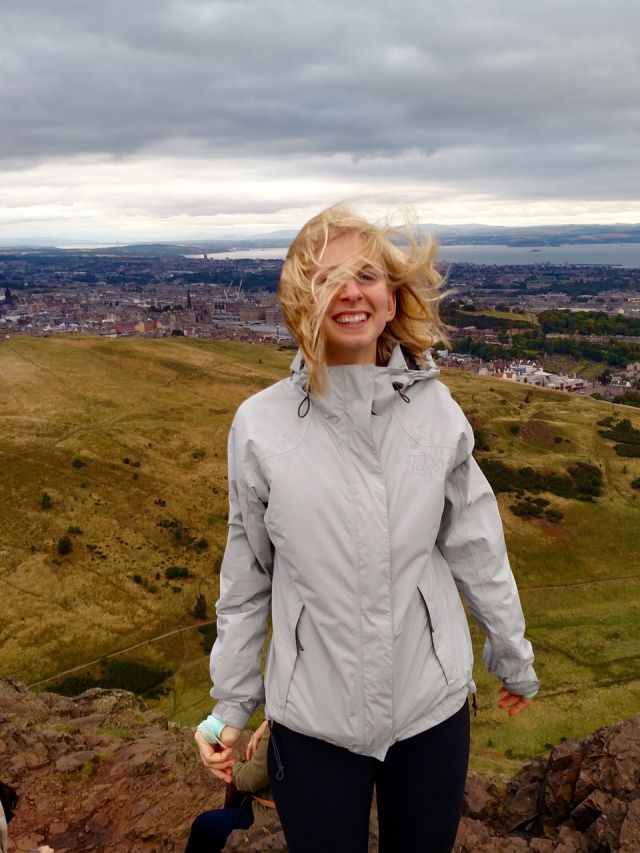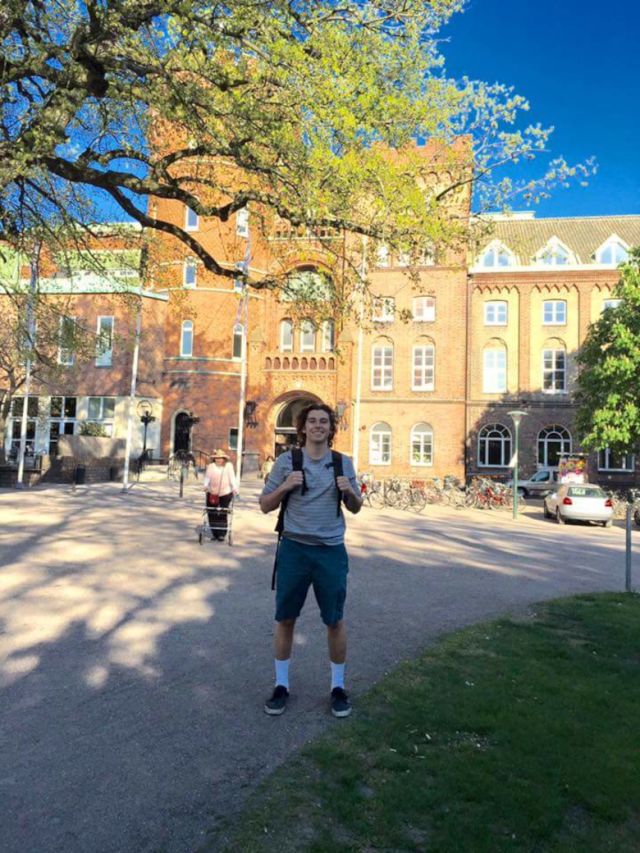Approved courses at selected UCEAP partners
Study Abroad in Physics
Study Abroad is a once-in-a-lifetime opportunity to travel and experience a different culture as an undergraduate while taking courses at a world-renowned academic institution. The UC Education Abroad Program partners with a large number of universities in over 40 countries and has a strong infrastructure in place to help with all practical aspects of planning Study Abroad.
This page is intended to address aspects of planning and course articulation for Physics majors wishing to Study Abroad.
Is Study Abroad possible for Physics majors?
It is indeed possible to integrate Study Abroad with the UCSB Physics curriculum, but it is important to start planning early. Planning should ideally start as early as the Spring quarter of the Freshman year. A good starting point is to familiarize yourself with your Physics degree course requirements and recommended course schedule for Freshman/Sophomore and Junior/Senior years.
When to Study Abroad?
Physics majors at UCSB typically Study Abroad in their Junior year.
It may be possible, with very careful planning, to Study Abroad as a Senior if you have completed all upper division core courses required for the major and are not planning on doing a Senior Thesis or applying to graduate schools in the Fall quarter of the Senior year. In addition to course planning, Seniors are advised to keep track of UCSB academic residence requirements.
If you wish to Study Abroad as a Sophomore, you will need to get the Sophomore year Physics and Math equivalent courses pre-approved by the Physics undergraduate advisor before departure in order to be sure that upon return, you will have met all the pre-requisites for UCSB upper division Physics courses.
Preparing for Study Abroad during Junior year
The Physics major consists of a highly structured curriculum, with most core courses offered as multi-part sequences. The first two years in the major consist of required Introductory courses in Physics and preparatory courses in Mathematics.
It is strongly advised that students stay at UCSB for the first two years to complete the introductory physics sequence Phys 20 –25 (or Phys CS 31 – 36 if you are a CCS Physics major) and the Math preparatory courses (Math 3A-3B, Math 4A-4B and Math 6A-6B). These courses are all pre-requisites for upper division physics courses.
UCSB Physics students in the Standard track take Phys 103 and Phys 115A (plus Phys 119A and Phys 102, if in the Honors track) in the Fall of their Junior year. Advance planning is essential in order to ensure that you can take Physics courses while abroad and be able to integrate back into the course sequences upon return in order to be able to graduate on time. Planning in advance will allow you to take some Junior year courses for which you have already met the pre-requisites during your Sophomore year or during Summer Sessions A, right before leaving to study abroad. These are typically courses for which it is not easy to find equivalents at UCEAP partner universities. In particular, it is strongly advised for those planning Study Abroad in Junior year to take Phys 103 during your Sophomore year. Phys 103 is offered in the Fall quarter and in Summer (Session A). If you plan to Study Abroad for the entire Junior year, if you have met the Mathematics pre-requisite, you are also advised to complete Phys 104 during the Winter quarter of your Sophomore year if an equivalent course is not available at your Study Abroad location.
Where to Study Abroad?
In deciding to choose a university for Study Abroad, first check if you meet the language requirement for the UCEAP partner university. Then check if you meet the eligibility criterion for the GPA requirement. Finally, check if the partner university has an exchange program in Physics as this could limit the number of Physics courses you may be able to take while studying abroad. For students who plan only the Fall semester abroad, it is also important to investigate the examination schedule of the Study Abroad partner. In several universities, exams are held in January for Fall semester classes or at the end of the academic year for all classes, however some universities make accommodation for UCEAP students to take early-exit exams in December.
While Physics programs at UCEAP partner institutions may offer the equivalent of UCSB upper division Quantum Mechanics, Electromagnetism and Thermal/Statistical Physics courses, they may not offer these sequences beginning the Fall semester. If you are determined to Study Abroad at a particular location, it is important for you to investigate their course sequences and course schedules and prepare in advance accordingly. Be aware that in cases of universities in the southern hemisphere, the academic year may start in January or February, which could add an extra layer of planning.
We provide a list of pre-approved courses equivalent to core UCSB Physics courses for a selected list of UCEAP partner institutions which have good overlap with UCSB Physics curriculum. You are encouraged to check back as we plan to continue adding to this list.
Questions?
For further general practical questions regarding Studying Abroad, contact EAP office at UCSB. You may want to browse through the UCEAP webpage to find application due dates for the EAP partner institutions and application forms. The links to programs by country includes important information about estimated UCEAP fees, GPA and language eligibility requirements.
For questions regarding Studying Abroad as a Physics major, please contact Dr. Sathya Guruswamy (sathya.guruswamy@ccs.ucsb.edu).

"I studied abroad in Edinburgh during the fall quarter of my junior year and my only regret is that I didn't stay longer. Studying physics in a new atmosphere was a great experience; while I was learning the same material, the difference in academic culture pushed me to become a more independent learner. Initially I was worried about how well my courses would line up with those at UCSB but the transition proved very manageable, and any extra effort was one hundred percent worth it. I highly encourage anyone to go abroad, and not to let the fear or worry of coordinating your life at UCSB stand in your way."
-Daniela, Class of 2017

"Taking a leap into Sweden and Lund University, specifically, proved to be one of the most rewarding and mentally fulfilling experiences on which I have ever embarked. From having a mid-lecture 'fika' with a professor to operating an NMR spectrometer as a homework assignment, this culture and style of teaching isn't something you can discover anywhere else on the planet. Not only did this time abroad expand my vision to alternate methods of instruction, but also shape the way I learn in and out of the classroom. I am forever grateful for the people, places and memories I otherwise wouldn't have come across if I had not studied at Lund."
-Benjamin, Class of 2017